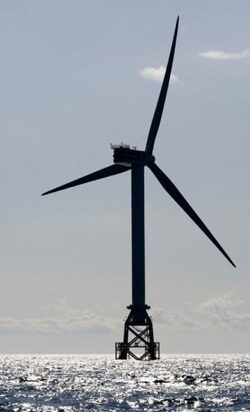Friday 21 January 2011
Cameron backs European "Supergrid"

Plans to explore linking up green energy projects in the North, Baltic and Irish Seas were backed by the Prime Minister today. Mr Cameron was speaking at a UK-Baltic-Nordic Summit held in London when he announced that Energy Ministers will work together through the North Seas Offshore Grid Initiative.
An electricity supergrid could take green electricity produced in one country to another through thousands of kilometres of sub-sea cables. Wind farms built out at sea could also be connected to a number of countries. Mr Cameron's announcment today could mean this moves closer to reality.
Energy Secretary Chris Huhne said: "Today we're stepping up our efforts with our European partners to develop a North Sea electricity supergrid that will help secure our energy supplies in a low carbon way."
The Prime Minister's comments come on the same day that Siemens announced it was selecting Associated British Ports as its preferred bidder for a UK wind turbine factory at the Port of Hull, Mr Huhne said this showed how business could see the potential of Britain.
"The race for offshore wind manufacturing jobs is on, and Siemens and the Humber are first out of the traps. I'm determined the UK economy benefits from the opportunities and jobs of the offshore wind supply chain."
Advocates of the supergrid say it could get over the problems of security of supply associated with wind power and help Europe meet its ambitious green energy targets.
Others say today's announcement is sheer folly in view of the current global gas glut. Dr Benny Peiser of the Golbal Warming Policy Foundation told ELN:
"According to the IEA, natural and unconventional gas is likely to supply the world with cheap energy for more than 100 years. The cost of the proposed offshore grid is astronomical, and the generation of offshore wind energy is 10 times more expensive than that generated by conventional power plants. It does not make any sense to make British industry - and manufacturing in particular - uncompetitive or to drive it overseas, and thus greatly weaken our economy, by gratuitously driving up energy costs."




